Honouring our Veterans
First Nations Cadet Corps respects and honours the work and sacrifice of all Native American veterans who proudly served their country and people. It’s because of them that our families are able to live free and happy.
The veterans listed here are just a few valiant souls among many. If you know of any others that you’d like to see listed here, please send an e-mail to Firstnationscadets@gmail.com.
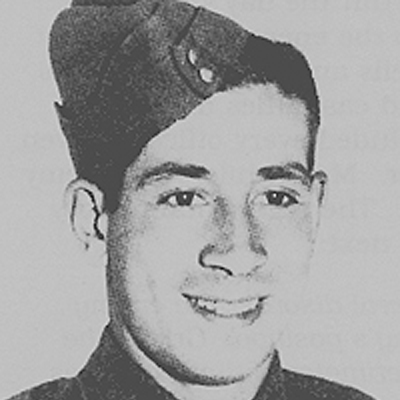
Charles Byce
Charles Byce, the son of a Cree woman, joined the Lake Superior Regiment (Motor). He won the Military Medal in the Netherlands and the Distinguished Conduct Medal in the Rhineland Campaign.
His citation for the latter was impressive:
“His gallant stand, without adequate weapons and with a bare handful of men against hopeless odds will remain, for all time, an outstanding example to all ranks of the Regiment.”
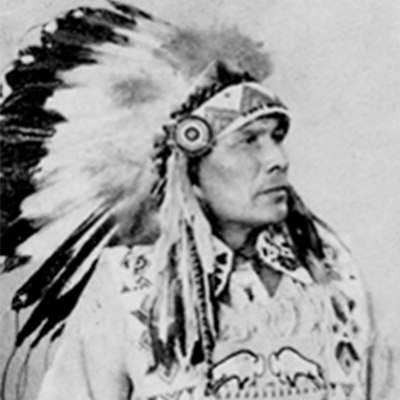
Joe Dreaver
Chief Joe Dreaver of the Mistawasis Cree Band was one of many Indigenous people who served in both World Wars. During the first, he was a sapper who earned the Military Medal at Ypres. Although he had seen war’s ugliest side, having lost one brother at Vimy Ridge and another at home from wounds received at Vimy, he did not hesitate to offer assistance when war erupted again.
Dreaver left his farm and drove 17 men from his reserve north of Leask, Saskatchewan, to Saskatoon to enlist. Three of the men were his own sons. Two of his daughters also served, and a younger brother went overseas as well. At 48, the chief himself was past the age for overseas service. He remained in Canada with the Veterans Guard, watching over prisoners of war in Medicine Hat, Alberta.
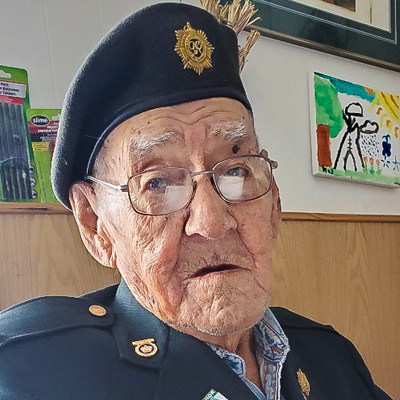
Phillip Favel
Philip Favel was a veteran from the Sweet Grass First Nation. Favel enlisted in the Canadian Armed Forces in 1941 at the age of 19. While overseas, Private Favel served in France, Belgium and Holland and returned home to North Battleford in July of 1945.
In his lifetime, Favel was an activist who fought for compensation to Indigenous Veterans who were excluded from the benefits that non-First Nations veterans received. His efforts resulted in compensation to First Nations veterans by the government.
Phillip Favel passed away in 2021 at the age of 98. His fight is finally at an end, but he has paved the way for so many.
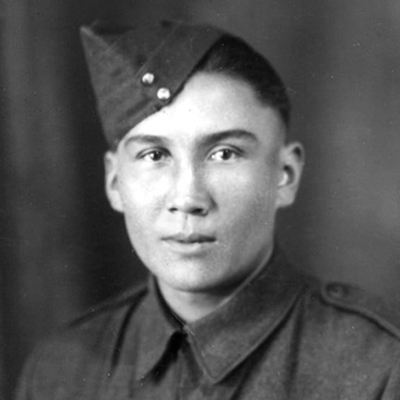
David Greyeyes
David Greyeyes, a member of the Muskeg Lake Cree Band in Saskatchewan, served in seven European countries in many difficult military roles, including commanding a mortar platoon in Italy. During the Italian Campaign, he earned the Greek Military Cross (third class) for valour in supporting the Greek Mountain Brigade. In 1977 he was awarded the Order of Canada.
His citation reads:
“Athlete, soldier, farmer, former Chief of the Muskeg Lake Reserve, Saskatchewan, and ultimately Director of Indian Affairs in the Maritime and Alberta Regions. For long and devoted service to his people, often under difficult circumstances.”
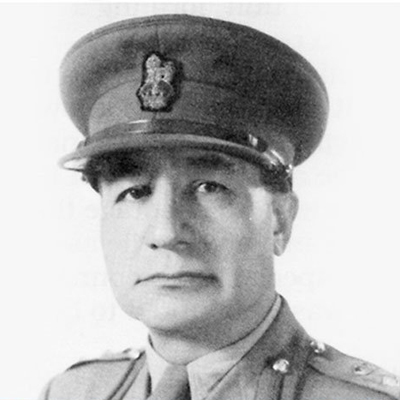
Oliver Milton Martin
Brigadier Oliver Milton Martin, a Mohawk from the Six Nations Grand River Reserve, reached the highest military rank ever held by an Indigenous person. During the First World War, he served in both the army and the air force.
In the Second World War, he oversaw the training of hundreds of recruits in Canada. For his 20 years of excellent service, he was awarded the Colonial Auxiliary Forces Officer’s Decoration.
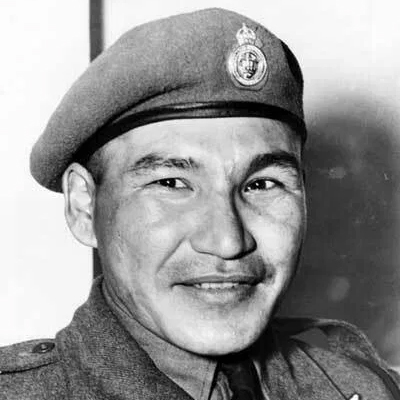
Thomas George Prince
Thomas Prince was Canada’s most-decorated Indigenous war veteran, having been awarded a total of 11 medals in the Second World War and the Korean War. However, upon returning home and despite his wartime service, Tommy found himself subjected to racism from the Canadian government, disallowing him the right to vote as well as the same benefits as other non-aboriginal veterans.
Some time later, he would take up the role of spokesman for Aboriginal rights, and even though he’d been faced with constant discrimination, bravely re-enlisted to serve his country once again.
Although homeless when he passed away, he was honoured at his funeral by his province, his country and the governments of France, Italy and the United States.
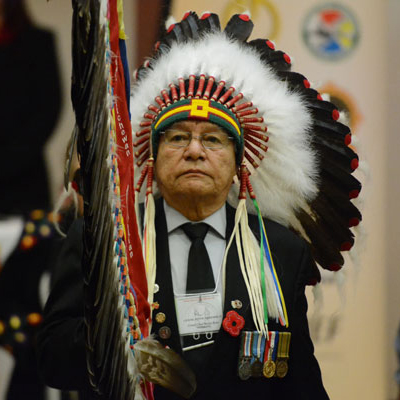
Steven Ross
Fresh out of school and searching for opportunities in the 1960s, a young, curious Steven Ross walked into an army recruitment centre in Saskatoon. According to Steven, this was a choice that “forever changed my life.”
Steven enlisted and served for the Queens own Rifles of Canada. His tour of duty included United Nations Peace Keeping Duty in Cyprus. He attributes where he is today to his service.
“It changed my thinking. I learned to be disciplined, focused, and I developed better thinking skills.”
He suggests that the choice to join the armed forces creates a lot of opportunities for young people with lots of available training and access to education. “I often wonder where I would have ended up if I had just stayed in Montreal Lake. When I joined, then I had a future – I had something to live for.”
Articles provided in part by Eagle Feather News, Veterans Affairs Canada, and The Canadian Encyclopedia.

